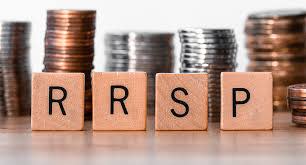Another Presale in my portfolio!
  

I'm thrilled to announce that we've included a 4th presale in our portfolio. A junior 2bdrm unit for $635,900. Here are the five compelling reasons behind this decision.
Attractive Investment Terms: With only a 10% down payment and an expected completion in 2028, this presale offers favorable terms compared to our other units completing in 2024 and 2025.
Rapid Appreciation in Property Value: Downtown Surrey concrete condos have shown a remarkable increase of $100/sqft in the last two years. Using a conservative estimate of a similar increase over the next four years, my initial investment is poised to grow by an impressive 92%.
Strategic Timing for Family Use: By 2028, we anticipate having two adult children, providing the option for them to potentially reside in the property. This not only adds a personal touch but also presents an opportunity to save on property transfer taxes.
Flexibility with Assignment: The presale comes with the advantage of a zero assignment fee for the 1st 75 units sold. This allows us the flexibility to potentially assign the contract for a profit before completion, with the only cost being the administrative fee.
Sentimental Value and Evolving Area: The property's proximity to Whalley Ballpark, which his is close to my heart. Furthermore, the evolving nature of the area suggests limitless potential for growth and development.
For more presale opportunities, feel free to give me a call. I'll share the pros and cons.
Speculation And Vacancy Tax
  

Residential property owners in the designated taxable areas declare every year for the speculation and vacancy tax, even if there is no change to your information. You must complete your declaration by March 31.
When a property has more than one owner, each person on title needs to make a separate declaration, even if the other owner is your spouse or relative. There may be special circumstances to consider such as a deceased owner or an owner who is out of town during the declaration period.
The fastest and easiest way to declare is online. If you cannot declare online, you can declare over the phone.
February is Here!! Last chance for income tax savings for 2023!!!
  

As many of you know, February is the last month to work on getting those income tax deductions for the last year!
Many people have developed annual financial patterns that are lowering their income tax on a regular basis, while saving on building up retirement assets.
My recommendations;
1) If cashflow is fairly consistent through out your calendar year, I would recommend finding a way to contribute monthly to RSP Accounts for your financial future;
2) If your cashflow is rather lumpy at times or it is not always clear how much income you might earn in a given year, usually lump sums can add flexibility, or allow top ups to a base savings.
3) How much savings is recommended of one's net income for retirement? The rule of thumb these days, is about 10% of Net Income.
$1,000,000 Savings paying 5%, is $50k per year without erosion
$500,000 Savings paying 5% is $25k per year without erosion
$250,000 Savings paying 5% is $12,500 per year without erosion
Also don't forget that you can borrow funds out of your RSP to use towards your home purchase down payment (first time buyers). If for whatever reason you have been unable to set funds aside, then consider using an RSP loan.
Anti Bullying Day!
  

We stand united against bullying!
It's Anti-Bullying Day, a time to raise awareness and promote kindness, acceptance, and respect. Together, let's create a culture of empathy and support, where everyone feels safe to be themselves. Join us in spreading kindness and standing up against bullying today and every day!
#AntiBullyingDay #Canada #KindnessMatters 🤝💙
|